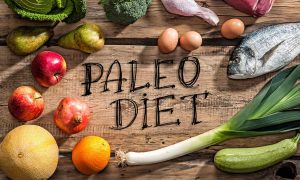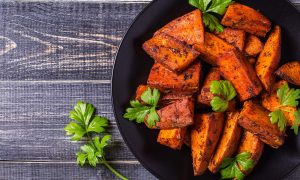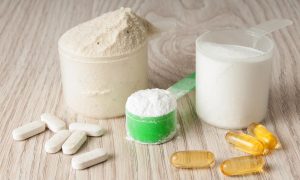Four Of The Most Common Diet And Nutritional Mistakes

|
|
For people trying to lead a healthy and active life, or even for people trying to reach specific fitness goals and targets, diet and nutrition in general is absolutely vital. We know all too well just how important it is that we consume a diet rich in fresh, healthy, and natural ingredients, but many of us aren’t actually sure why that is. We know that eating fresh vegetables regularly for example, is good for us, but we aren’t sure why that is. Some people will say that it is because they’re ‘rich in vitamins’ which is true, but if you ask them why vitamins are important, and what positive effects they have on the body, a lot of people would be stumped. It is a basic lack of knowledge and understanding that causes a lot of people problems when it comes to their diets, which is why people tend to make some common, and very avoidable, diet and nutritional errors. To help ensure that you yourself, never actually make any of these mistakes, here’s a look at four examples of the most common diet and nutritional errors.
Under or over-estimating protein consumption

In regards to health and fitness, protein is arguably the most vital macronutrient of the three, the other two being fats and carbohydrates. The reason for this is that protein plays a vital role in lean muscle growth and repair. If a person is not consuming enough protein every day, it can be very hard for their bodies to either build, or maintain lean muscle mass of any kind. One of the most common mistakes that people make with protein however, is to underestimate, or overestimate, exactly how much they should be consuming each day. Ideally, the optimum amount of protein for somebody trying to build, or maintain lean muscle mass, is 1 – 1.5g per pound of bodyweight. A lot of the time however, people won’t actually bother measuring how much protein they’re consuming at all, and will simply play it by ear. If you fail to get enough, you will lose muscle, and will struggle to build it. On the complete opposite end of the spectrum however, people trying to bulk up will consume far too much, which is not only a waste, but it can also put unnecessary pressure on the kidneys and liver as well.
Keeping calories low for too long
Another common error that people tend to make, particularly those trying to lose weight, or maintain their weight, is keeping their daily calorie levels too low, for too long. In order to lose weight, a calorie deficit must be created, and to begin with, this sudden drop in calories will result in a great deal of fat being burnt off from the body. As time goes by however, the body will get used to functioning on such a low amount of calories each day, which will result in you struggling to lose weight, and having a noticeable lack of energy in the process. When you diet, you create a negative and stressful environment for the body, which can result in increased levels of cortisol being produced and secreted. Cortisol is a stress hormone that increases blood sugar levels and reduces the metabolism. It also leads to cravings for unhealthy foods, which is obviously the last thing you want if you’re trying to lose weight. Instead, rotate your calories, try consuming X amount for the first two – four weeks, then increase them slightly for the next two – four weeks, and then increase them so that you’re eating at maintenance for the next two – four weeks. That will basically reset your metabolism, so when you do reduce them again, you’ll lose a great deal of weight, like you did when you first started your diet.
Trying new “diet plans” every few weeks

You’ve probably got friends on various social media pages, talking about how much success they’re having with a certain fad diet, and how they lose X amount of weight whilst following it. In reality, fad diets are not productive in the slightest because they often result in you depriving your body of energy and of food in general, whilst constantly feeling hungry and miserable in the process. The most effective diet plan you could ever wish for, is a basic healthy eating plan which ensures that you’re eating regularly, eating healthily, and actually enjoying the foods that you’re eating. Forget powdered “juice diets” forget starvation diets, and forget fad, celebrity endorsed diets, because all you need is a healthy and balanced diet rich in healthy and natural foods that the body needs to function as it should.
Believing advertising and marketing hype

As mentioned, you’ve probably noticed that nowadays, there are a lot of so-called “juice diets” which come in powdered form, requiring you to mix the powder with water, and then chug down your “meal”. Clever marketing campaigns and advertisements will swear that it is the healthiest diet in the world, as it is will contain “real fruits and vegetables”. The powders may indeed contain real fruits and vegetables, but they don’t tell you what else they contain, and besides which, do you know what also contains real fruits and vegetables? Actual fruits and vegetables. No food or supplement that comes in powdered form, and happens to be full of sugars and chemical sweeteners and additives, can ever truly be considered as healthy as the real thing. You may indeed see magazines and articles talking about the various benefits of certain supplements and diet plans, but the thing to remember is that of course they’re going to swear that their product is the best product on the market, otherwise how are they going to sell it? If a supplement, a diet plan, or a product promises results that sound too good to be true, don’t believe the hype, because with health and fitness, there are no quick fixes. Stick with healthy, natural foods, sensible exercise routines, and a healthy lifestyle and you’ll soon see results.
References:
https://breakingmuscle.com/nutrition/is-low-calorie-dieting-dangerous














